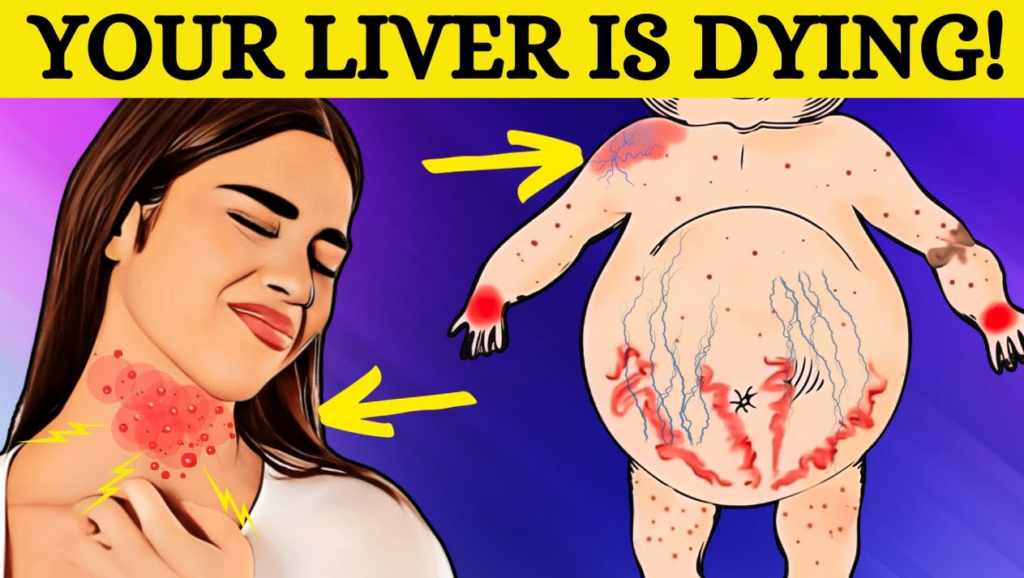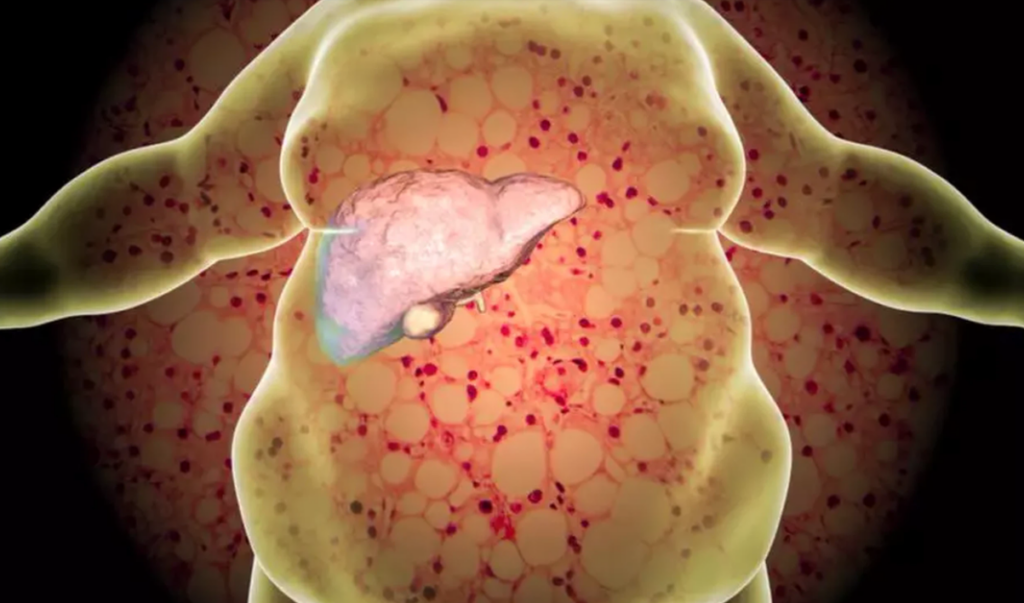Fatty Liver Disease, also known as Hepatic Steatosis, is an increasingly common condition where excess fat accumulates in liver cells. While this condition is reversible with early detection and treatment, it can lead to severe liver damage and complications if left unmanaged.

Causes of Fatty Liver Disease
- Poor Diet
One of the primary causes of fatty liver disease is an unhealthy diet. Consuming large amounts of processed foods, sugary drinks, and saturated fats can overload the liver with excess fat. Foods like sodas, fried snacks, and sugary treats significantly contribute to fat accumulation in the liver. - Omega-6 Oils
The overconsumption of omega-6 vegetable oils such as palm, sunflower, and cottonseed oils can lead to liver inflammation, affecting the liver’s ability to process fats efficiently. - Sedentary Lifestyle
Lack of physical activity results in a reduced ability to burn calories, leading to fat being stored in the liver. Sitting for long hours without breaks and avoiding exercise can contribute to the development of fatty liver disease. - Insulin Resistance
Conditions like obesity and type 2 diabetes, which lead to insulin resistance, play a significant role in the development of fatty liver disease. When the body becomes resistant to insulin, it fails to regulate blood sugar properly, which in turn increases fat storage in the liver. - Genetics and Hormonal Changes
Some individuals may be genetically predisposed to fatty liver disease. Hormonal changes during pregnancy or due to conditions like polycystic ovary syndrome (PCOS) can also contribute to liver fat imbalances. - Excessive Alcohol Consumption
Excessive drinking is a major cause of alcoholic fatty liver disease. Long-term consumption of large amounts of alcohol leads to fat buildup in the liver due to its toxic effects.
Top 8 Signs of Fatty Liver Disease
Recognizing the signs of fatty liver disease early can help in managing and preventing further damage. Here are the top 8 signs to watch for:
- Spider Veins
Tiny, web-like veins on the skin may appear due to poor liver function, affecting blood flow. - Red Palms
Persistent redness in the palms can be a sign of liver dysfunction, caused by changes in blood vessels. - Swollen Abdomen (Ascites)
Fluid buildup in the abdominal cavity can lead to swelling, which is often associated with advanced fatty liver disease. - Enlarged Blood Vessels in the Abdomen
Obstructed blood flow due to liver dysfunction can cause blood vessels in the abdomen to swell, leading to varices. - Itchy Skin
When the liver is overwhelmed with fat, toxins may accumulate, causing persistent itching. - Shoulder Blade Pain
Pain between the shoulder blades, though less common, can indicate liver enlargement or inflammation. - Dark Patches on the Skin
Acanthosis nigricans, or dark patches on the skin, often in body folds, may indicate insulin resistance, a factor in fatty liver disease. - Nail Changes
Discoloration or white lines in the nails can signal underlying liver issues as the liver affects nutrient absorption and distribution.
How to Improve Liver Health

- Adopt a Healthy Diet
A balanced diet rich in fruits, vegetables, whole grains, and lean proteins supports liver function. Limiting processed foods, sugars, and unhealthy fats can significantly improve liver health. - Stay Hydrated
Drinking plenty of water helps flush out toxins and supports digestion. Aim for at least 8 glasses of water a day. Green tea is also beneficial due to its antioxidant properties. - Exercise Regularly
Physical activity helps burn fat, manage weight, and improve insulin sensitivity, all crucial for reducing fatty liver. Aim for at least 150 minutes of moderate-intensity exercise per week. - Limit Alcohol Consumption
Reducing or eliminating alcohol intake is essential for liver health. The liver has a remarkable ability to regenerate when given the chance. - Consider Liver-Cleansing Foods and Supplements
Foods like garlic, turmeric, beets, and leafy greens support liver detoxification. Supplements like milk thistle and dandelion may also promote liver health, but always consult a healthcare professional before taking them.
Conclusion
Recognizing the signs and causes of fatty liver disease is crucial for early intervention. By adopting a healthy lifestyle, including a balanced diet, regular exercise, and reducing alcohol intake, you can significantly improve liver health and prevent further complications. If you experience any of these symptoms, it’s important to consult a healthcare professional for a thorough evaluation. Taking care of your liver is key to maintaining your overall well-being.





